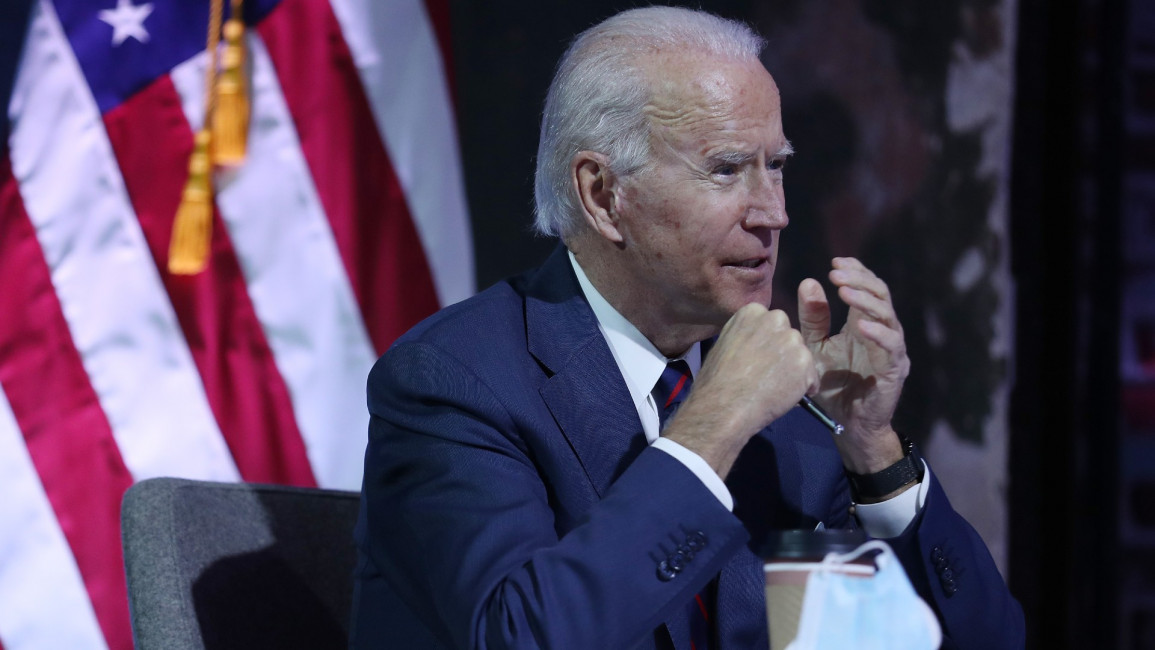Biden says Trump policies allowed Iran to increase nuclear material
"The bottom line is that we can't allow Iran to get nuclear weapons," Biden told CNN’s Jake Tapper.
"He has pulled out to get something tougher, and what have they done? They've increased the ability for them to have nuclear material. They're moving closer to the ability to be able to have enough material for a nuclear weapon. And there's the missile issues."
In his first joint interview with Vice President-elect Kamala Harris, Biden added: "All those things, I think, are going to be very difficult.
"But I know one thing: We cannot do this alone. And that's why we have to be part of a larger group, dealing not only with Iran, but with Russia, with China and a whole range of other issues."
This has been one of the more substantive statements Biden has made about Iran, though not his first since assuming the position of President-elect.
Biden has signalled he will return the US to a nuclear accord with Iran before quickly launching talks on other concerns, reviving diplomacy to ease soaring tensions.
Biden told The New York Times that he still backed the 2015 deal negotiated under Barack Obama from which defeated president Donald Trump withdrew.
The president-elect told the newspaper's columnist Thomas Friedman that "it's going to be hard" but that if Iran returned to compliance, the United States would rejoin the agreement.
|
The top US priority should be to prevent an Iranian nuclear weapon, Biden said, explaining, "The last goddamn thing we need in that part of the world is a build-up of nuclear capability."
After re-entering the agreement, "in consultation with our allies and partners, we're going to engage in negotiations and follow-on agreements to tighten and lengthen Iran's nuclear constraints, as well as address the missile program."
Staunchly opposed to the agreement is Israel, which was widely suspected in the assassination last month on the outskirts of Tehran of Iran's leading nuclear scientist, Mohsen Fakhrizadeh.
Iranian Foreign Minister Mohammad Javad Zarif last month said that his country would immediately return to its JCPOA commitments if Biden removes crippling sanctions imposed by Trump.
Analysts widely expect Biden to use the sanctions, which include US attempts to stop all of Iran's oil exports, as leverage, at least initially.
Outgoing Secretary of State Mike Pompeo insisted that the 2015 deal was dangerously narrow and demanded that Iran stop missile activity and regional proxies – conditions that went unmet and were seen by many as code for seeking to topple the regime, an arch-nemesis of Washington since the 1979 Islamic Revolution.
In the run-up to leaving office, the Trump administration has been redoubling sanctions on Iran, including on human rights and nuclear proliferation grounds, believing such measures are more politically difficult to lift.
Iran in turn holds presidential elections in June in which the favoured candidates are hardliners who say it was a mistake ever to trust the US.
Follow us on Facebook, Twitter and Instagram to stay connected


